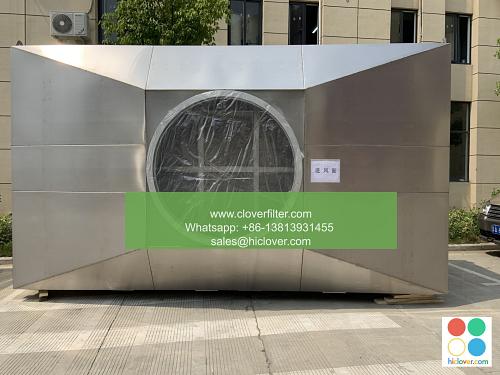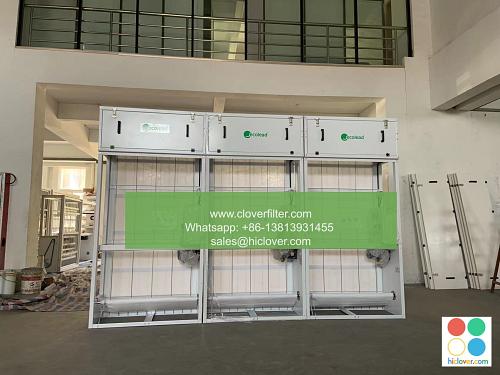Air Filter Quality Control: The Role of Filter Cleaning

Air Filter Quality Control: The Role of Filter Cleaning
Air filters play a crucial role in maintaining indoor air quality, capturing airborne particles, and ensuring a healthy environment. In industries such as healthcare, food processing, and pharmaceuticals, air filters are mandatory to prevent contamination and maintain a sterile environment. However, air filters can become clogged and rendered ineffective over time, compromising their ability to provide the necessary air cleaning. This is where filter cleaning comes in – a critical aspect of air filter quality control.
The Importance of Filter Cleaning
Filter cleaning is a vital process that ensures the filter’s effectiveness in removing impurities from the air. dirty filters can lead to reduced air quality, increased energy consumption, and even compromise the health and well-being of building occupants. Cleaning filters regularly can help maintain optimal air quality, extend their lifespan, and reduce the need for frequent replacements.
Applications of Filter Cleaning
Filter cleaning is a vital process in various industries, including:
- Air Handling Units (AHUs): Cleaning filters in AHUs is crucial to maintain optimal air quality, reduce energy consumption, and extend equipment lifespan.
- Dust Collection Systems: Clean filters in dust collection systems ensure efficient collection of dust and debris, improving air quality and reducing equipment downtime.
- Food Processing: Clean filters are essential in food processing facilities to prevent contamination and maintain a sterile environment.
- Pharmaceuticals: Clean filters are critical in pharmaceutical manufacturing facilities to ensure the production of high-quality products and maintain a sterile environment.
Types of Filter Cleaning
There are two primary methods of filter cleaning:
- Dry Cleaning: Dry cleaning involves using compressed air, vacuum, or brushes to remove dust and debris from the filter surface. This method is suitable for filters with a low filter density and is often used in air handling units and dust collection systems.
- Wet Cleaning: Wet cleaning involves immersing the filter in a cleaning solution and then rinsing it with water. This method is suitable for filters with a high filter density, such as those used in espresso machines and medical equipment.
Benefits of Filter Cleaning
Regular filter cleaning can provide numerous benefits, including:
- Improved Air Quality: Clean filters ensure that the air is free from contaminants, reducing the risk of health issues and maintaining a healthy environment.
- Extended Filter Life: Cleaning filters regularly can extend their lifespan, reducing the need for frequent replacements and minimizing waste.
- Reduced Energy Consumption: Clean filters can help reduce energy consumption by ensuring that equipment runs efficiently and minimizing the need for constant restarts.
- Increased Equipment Uptime: Clean filters can help reduce equipment downtime, ensuring that systems remain operational and minimizing the risk of costly repairs.
Conclusion
In conclusion, filter cleaning is a critical aspect of air filter quality control. Regular cleaning can help maintain optimal air quality, extend filter life, and reduce energy consumption. By understanding the importance of filter cleaning and the various methods available, industries can ensure that their equipment operates efficiently and effectively, providing a healthy and safe environment for occupants.
It seems like you’ve accidentally transmitted a blank prompt! Would you like to give me a new prompt or topic to work with? I’m here to help with any question, task, or creative exercise you’d like to explore!


